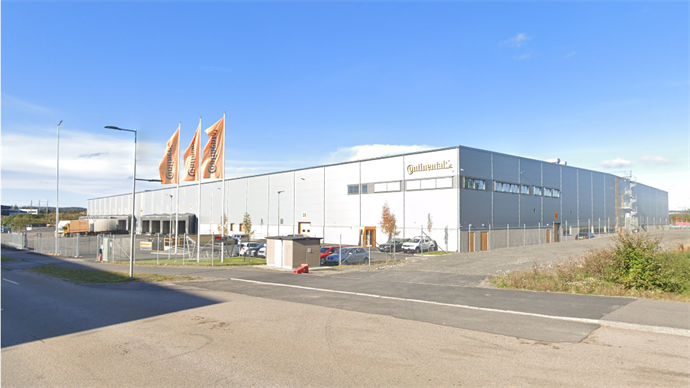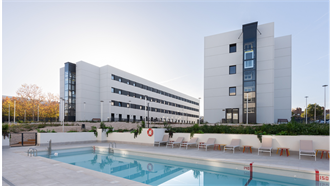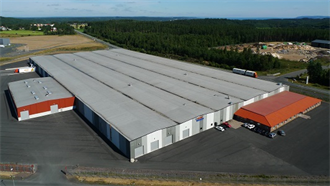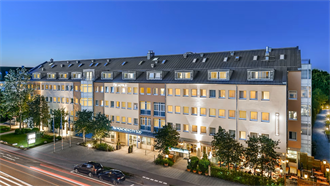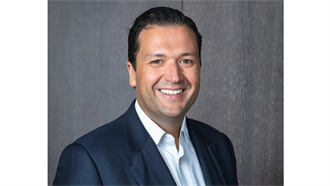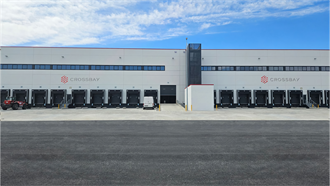Apollo Global Management (APO) has closed three off-market European logistics deals for a combined €235 mln as it continues to build out a sizeable European core-plus business.
The US company’s European Core Plus program already owns 70 assets with a gross asset value of €2.2bn. It has investments in the logistics, offices, multifamily and student accommodation sectors in Germany, the UK, France, Belgium, Ireland, Poland, and Sweden – with many deals occurring “under the radar” as the firm quietly goes about growing the portfolio.
In an interview with PropertyEU, APO said the three recently completed logistics deals took investments in that sector to €700 mln, with assets being in the UK, Germany, France, Sweden which represents around 80% of the total value, and Poland and Ireland which represent 20% of the remainder.
The logistics portfolio has been aggregated over the past 18 months through a series of bilateral recapitalisations, sale and leasebacks and direct acquisitions from owners originated through its relationships with market players.
The three latest deals, called Project Sol, Sky, and Tam, were closed in the space of four days between 31 May and 3 June on behalf of Apollo’s insurance company platform.
In January this year, APO completed a merger with Athene, to create an investment and insurance group with a combined market cap of $43 bn.
Explaining more of the three recent transactions, APO said they involved 13 substantially stabilized urban and mid box logistics assets across Sweden, France and Ireland.
The assets are located in major logistics hubs of Tier 1 jurisdictions acquired at prices the firm said were ‘in line with or below replacement cost’, with the benefit of further improvements through the intended life cycle of the investments.
APO said: ‘This is in keeping with our philosophy that purchase price, and the ability to directly impact our total return, matters, in particularly in times of capital market dislocations.’
APO said it believed value could be found in a ‘competitive sector’. ‘We expect this to improve as pricing expectations stabilise, and pricing improves in response to macro pressures.’
The company further explained, ‘Our focus has been primarily on urban and mid box logistics, owing to the valuable role these play in the overall distribution chain, and in locations that have natural barriers to entry based on land unavailability which limits new supply and creates conditions for capture of outsized rental growth.’
‘Logistics is one of our key sectoral focus areas which is underpinned by positive secular trends affecting the way commerce, the lifeblood of European economies, functions – both at a B2B and B2C level affording us the ability to capture smart beta.’
APO further explained in addition to this, all of the acquisitions it has made provided for ‘multiple levers of additional value creation supplementing the smart beta with direct alpha,’ for example, vacancy reduction, nil or accurately priced expansion potential, and significant reversion.
‘We therefore organically grow into our stabilised yield from attractive day one pricing basis. In doing so, we have remained very disciplined, as a proprietary investor, on fundamentals underpinning these investments and in choosing not to pursue opportunities with unfavourable competitive dynamics or at levels of yield/pm2 costs we don’t believe represent compelling value.’
Core plus strategy
Boris Olujic, MD and head of APO’S European Core Plus programme, said the core-plus strategy had been ‘fundamental opportunity driven, rather than geographically biased’ within geographies with proven liquidity to date and that gross asset value of the platform could reach €3 bn by the end of the year.
For logistics, the focus has been on last-mile and middle mile distribution assets.
Prior to the three recent transactions, logistics investments include the €350 mln Project Red acquisition of a portfolio in the UK, Germany, Ireland, and Poland where DHL provides around half of the rental income.
But APO has also been busy adding assets in other segments. For example, it has invested in two portfolios of UK student accommodation in the UK a £210 mln portfolio called Project Jewel and £161m portfolio called Project Novel; a €137 mln office in Paris called Project Earth; and a €63 mln office in Frankfurt called Project Merton.
Speaking of the way APO has grown the core-plus platform, Olujic explained: ‘I would say we have just quietly got on with the job by focusing on direct origination. Many things have gone under the radar. Our ability to marry long term capital with discretionary decision making and alternative investment execution capabilities has benefited us in the sense that counterparties have been more open to engage with us on a bilateral basis.’
He added the firm was currently working on a ‘sizeable, tangible pipeline’ in the student accommodation segment where it is collaborating with two operating partners for an as-yet unbranded platform.
However, new areas of focus include life sciences. In May, APO acquired a minority equity stake in European life sciences venture capital firm, Sofinnova Partners, and is now actively examining life science real estate opportunities.
Speaking of the current investment climate for pursuing a core-plus strategy, he said, ‘We are entering an interesting point of the cycle where our ability to offer execution certainty across high conviction strategies will translate into some interesting buying opportunities for us, and which could lead to an acceleration of growth over the coming few years. From the perspective of the overall size of APO, the core plus strategy is still fairly fledgling, but one that is pretty strategic to the firm as we seek to capture what we believe to be our fair market share both in Europe and in time, in other markets where we have an established presence.’
APO’s core-plus strategy is housed within its “Hybrid Real Estate” strategy, which also includes net lease investments and also forms part of the broader established European Principal Finance opportunistic business, currently in the fourth incarnation of its EPF fund series led by Skardon Baker, and its commercial real estate lending platform led by Ben Eppley.


